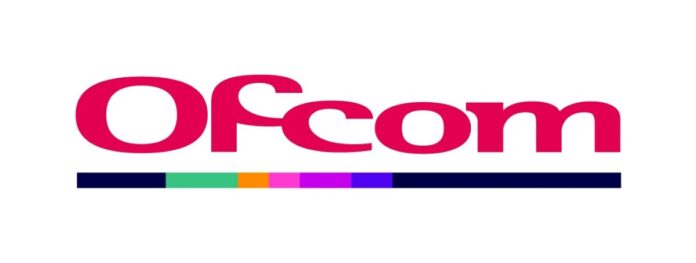GCA outlines members’ position in its formal response to Ofcom’s consultation into plans to cut Royal Mail’s service – including six-days-a-week second class deliveries
The Greeting Card Association (GCA) has submitted its formal response to Ofcom’s review of Royal Mail’s ‘Universal Service Obligation’ (USO) and in highlighting its concerns – including many it has previously raised – it now believes the regulator may be in breach of its legal duties to businesses and consumers.
After a thorough and detailed review, the GCA now believes Ofcom has a case to answer that its proposals to amend the USO appear to breach the regulator’s legal obligations.
Those proposals would end Saturday second class deliveries, cut the second-class service to two or three days a week and relax legal delivery targets to make it easier for Royal Mail to achieve them.
The response comes as its petition calling for MPs to scrutinise changes to the postal service has reached over 16,500 signatures – crossing the 10,000 threshold that mandates a response from government– and days after stamp prices rose significantly again.
In its formal response, the GCA is now raising concerns that its consultation into a proposed overhaul of the USO contradicts the 2011 Postal Services Act, which requires an affordable postal service to be available six days per week.
What’s more the response outlines concerns from GCA members that the consultation process itself continues to suffer from fundamental shortcomings, including failure to:
- Conduct an adequate ‘Reasonable Needs Assessment’ under section 30 (3) of the 2011 Postal Services Act.
- Adequately assess the wider economic impact of proposed changes.
- Maintain an affordable postal service six days a week as mandated by legislation.
- Ascertain whether Royal Mail’s costs have been adequately assessed before recommending changes to the USO.
- Protect 1million-plus consumers in 37 locations across the country who are already part of a pilot to implement reduced delivery schedules without any consumer notification that stamp buyers may be getting a worse service than the one they paid for.
In its submission, the GCA highlights significant flaws in Ofcom’s data and modelling assumptions.
It concludes that if Ofcom continues to back the changes it’s outlined to the USO, it risks triggering a sharper-than-necessary decline in letter volumes, increasing the likelihood that the taxpayer could be called upon to bail out Royal Mail in future.
What’s more the GCA questions the announcement, made on the final day of the consultation, of a dedicated NHS barcode classification. Rather than being universal, coherent or equitable, it suggests that the 11th hour announcement appears to create the risk that the USO will become a patchwork of political exemptions, eroding the consultation’s cost case, creating a more fragmented, inefficient – and ultimately less affordable – service for businesses and consumers alike.
What’s more, it also highlights the extraordinary position Ofcom has found itself in – a regulator tasked with maintaining affordable postal services, is acknowledging that its proposals are likely to push first class stamp prices even higher, with its own data showing 62% are sending fewer letters precisely because of rising prices.
The cost of a first-class stamp price is up 170% over the last decade, and the price rise that took effect this week (7 April) when the price rose to £1.70, is the sixth in under three years.
These rises are causing significant concern among GCA members.
“It’s time for MPs to get involved in proposals that as they stand, will make the postal service less national, affordable and reliable”
Amanda fergusson, GCA CEO
Earlier this year those members launched a petition to urge MPs to investigate proposed changes to Royal Mail’s USO and it’s now clear public sentiment echoes the GCA’s concerns.
More than 16,500 UK voters have now joined the GCA’s call for proper parliamentary scrutiny of any proposed change and asked MPs to regulate the price of first-class mail and mandate that Royal Mail meets existing delivery targets before any changes to the USO are approved.
Having crossed the 10,000-signature threshold, the government must now respond to the GCA’s petition in the coming days, and the strength of feeling among business and consumers is also reflected in the GCA’s own data.
Four out of five consumers believe rising stamp prices and reduced delivery days will negatively impact small businesses and the UK economy, while three out of four consumers believe these actions act against consumer expectations and are a step backwards.
Amanda Fergusson, chief executive of the GCA said: “Greeting cards are the beating heart of personal post in the UK and not only is this deeply valued tradition under threat, changes to the USO threaten to impact all of us who rely on Royal Mail to receive important communications, from cards to hospital appointments.
“Our detailed review of Ofcom’s proposals has demonstrated we now need proper answers from Ofcom and Royal Mail about their proposals. Our members are clear. A reduced service – already being piloted for thousands without proper parliamentary scrutiny – will have a serious impact on their businesses.
“And consumers too are deeply concerned – the public response to our petition shows that decisions about the postal service they treasure are too important to be left to Ofcom and Royal Mail alone.
“It’s time for MPs to get involved in proposals that as they stand, will make the postal service less national, affordable and reliable.”
Greetings Today approached Ofcom for a response. An Ofcom spokesperson said: “The universal postal service needs urgent reform to be sustainable for the future. We’ve set out proposals to make that happen, having considered a range of factors including postal users’ needs, Royal Mail’s costs and potential impacts to the wider economy. That includes safeguarding what matters most to people – First Class mail six days a week, with a price cap on Second Class stamps. We’ll examine feedback from postal users, experts and the industry before setting out our final decisions in the summer.”












